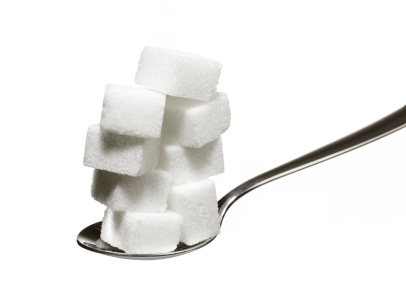So maybe Tom Philpott convinced you to wean yourself off aspartame, or maybe you just think chemical-based sweeteners taste oogy. (Okay, ALL sweeteners are chemical-based, but you know what I mean.) Well, the folks at Salon have taken one for the team, eating a lot of gross cookies so you can know which sugar substitute is best.
Agave syrup
- Stacks up to sugar: Barely any point to substituting. It has a low glycemic index — meaning it won't give you a "sugar crash" — but requires so much processing that some forms might as well be corn syrup. And it has just as many calories as sugar for just as few nutrients.
- Cookies tasted: "Chewy" and "raisin-like." Nice if you like that sort of thing!
Brown rice syrup
- Stacks up to sugar: A bit more nutritious. Even after processing, it has a vitamin or two, plus you won't get the sugar crash because it's full of complex carbs.
- Cookies tasted: "Unpleasantly gummy." One tester compared them to a bad dream.
Stevia
- Stacks up to sugar: Better for the sugar-sensitive (and much, much sweeter per volume). Stevia doesn't raise blood sugar, and it has no calories.
- Cookies tasted: Crumbly, with an "odd chemical aftertaste." Sugar doesn't just sweeten things, it also serves a structural function in baked goods, so sugar-free treats can't always hold it together.
Date sugar
- Stacks up to sugar: It's like sugar-plus. You still can't have it if you're sugar-sensitive (diabetic, for instance), but in addition to sucrose it's full of yummy nutrients.
- Cookies tasted: "Very crumbly" but "nutty, not super-sweet." Salon declared this one the pick of the litter.




